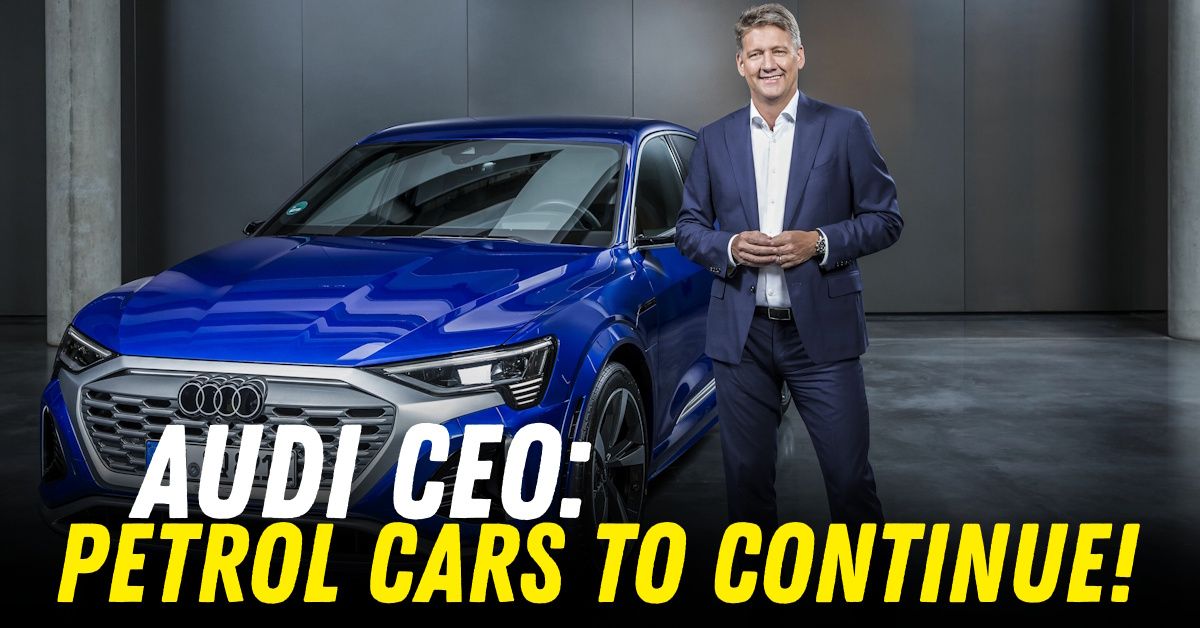Audi Dumps 100% Electrification Plans: Petrol Engines To Live On


Audi has dramatically reversed course on its ambitious electrification timeline, scrapping its 2033 deadline to phase out petrol engines entirely. The German luxury carmaker's CEO Gernot Döllner confirmed the company no longer has a fixed date for ending internal combustion engine development, marking a stunning U-turn from the brand's previous all-electric commitment. Instead, Audi will launch a completely new lineup of petrol and plug-in hybrid vehicles from 2024 to 2026, giving the company complete flexibility for at least another seven, eight, maybe ten years.
This strategic pivot comes as Audi grappled with disappointing electric vehicle sales, which dropped 8 percent to just over 164,000 units globally in 2024. The company's overall sales plummeted by nearly 12 percent to 1.67 million vehicles, with particularly sharp declines in key markets including Germany, where deliveries fell 21.3 percent.
The numbers tell a sobering story about the challenges facing premium electric vehicles. Despite launching the much-anticipated Q6 e-tron after years of delays, Audi's electric ambitions failed to gain the traction executives had hoped for. The company's EV sales represented only about 10 percent of total deliveries, far below what would be needed to justify an all-electric transition by 2033.
CEO Döllner acknowledged that challenging economic conditions and an inability to plan funding structures are currently causing a certain reluctance to buy across the industry, especially when it comes to fully electric vehicles. This market hesitancy has forced Audi to reassess its timeline and approach to electrification.
The reversal brings exciting news for petrolheads who feared the demise of Audi's legendary performance engines. The company has hinted that future RS models may continue to feature internal combustion engines, potentially including the return of iconic models like the R8 supercar. Döllner suggested that Audi's upcoming Formula 1 participation from 2026 could bring nice surprises for performance enthusiasts.
This shift aligns with feedback from automotive communities, where enthusiasts have praised Audi's traditional strengths in engine development while acknowledging the quality of their electric offerings. Reviews of the e-tron have highlighted its refined driving experience and luxury appointments, but noted the premium pricing that limits broader market appeal.
Rather than abandoning electrification entirely, Audi is doubling down on plug-in hybrid technology as a bridge solution. The company plans to launch ten new plug-in hybrid variants in 2025, featuring significantly improved electric ranges of up to 110 kilometres. These new e-hybrid models will offer around 45 percent more energy content and 46 percent higher energy density than previous generations.
This approach reflects lessons learned from the broader automotive industry's struggles with EV adoption. Supply chain challenges, high battery costs, and inadequate charging infrastructure have created headwinds that even premium brands cannot easily overcome.
The strategy shift has particular relevance for the domestic market, where Audi currently imports all its electric vehicles at prohibitive prices above Rs 1.2 crore. Local assembly of hybrid models could make advanced powertrains more accessible, potentially helping Audi achieve its target of 50 percent electrified sales by 2030.
Audi's head of operations in India, Balbir Singh Dhillon, has indicated that localisation plans are being evaluated for both hybrid and electric vehicles, which could significantly improve competitiveness against rivals like Mercedes-Benz and BMW.
Audi's reversal reflects a more pragmatic approach to the automotive transition. While still committed to eventual electrification, the company has recognised that market realities do not always align with corporate timelines. The decision to maintain flexibility in powertrain options ensures Audi can respond to varying regional preferences and infrastructure development rates.
This measured approach may ultimately prove wiser than rigid adherence to arbitrary deadlines, allowing the company to maintain its engineering heritage while gradually building the foundation for an electric future when market conditions truly support it.